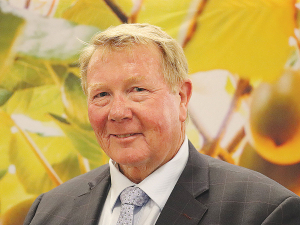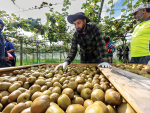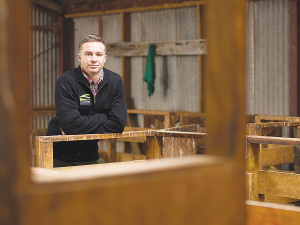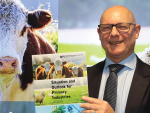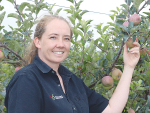Zespri has warned that its profit may fall as much as 40% as it struggles with fruit quality issues.
The kiwifruit marketer and exporter company has forecast profit of $217 million to $227m in the year to March 31, down from its November forecast of $225m to $235m. This is well below last year's $361.5m profit.
Kiwifruit is New Zealand's largest horticultural export and Zespri handles about a third of the fruit's global trade, selling into more than 59 countries.
It has been beset with fruit quality issues, which is weighing on grower payments and impacting the company's reputation for supplying consistent fruit quality.
"The latest February forecast reflects the challenges out industry has experienced in the 2022 season with fruit quality," Zespri chairperson Bruce Cameron said in an industry update.
Volumes from its growers in other countries were also down, he added.
The kiwifruit harvest generally starts in February, traditionally peaking in mid-April and running through until June. The poor fruit quality has been attributed to inexperienced staff due to a labour shortage, frost, and other reasons.
In its final forecast for the season, the co-operative said it expects to pay $5.55 per tray for green kiwifruit, down from its November forecast of $6.13. For organic green kiwifruit, the payment would drop to $8.04 from $8.83. A tray held 30 fruit.
"While we've seen some upside from favourable foreign exchange movements and lower spend across key markets, returns for each of the major pools are down from November's forecast, other than for Organic SunGold Kiwifruit," Cameron said.
Based on the forecast, Zespri has halted some progress payments to growers.
Earlier in the year - kiwifruit grower organisation NZKGI - had written an open letter to Zespri asking for an explanation over the lack of February progress payments for producers of green kiwifruit.
This followed an update to growers on 20 January in which Zespri said growers would not get progress payments as fruit quality issues had resulted in additional costs.
The NZKGI letter asked Zespri how it could get the orchard gate return (OGR) forecast so wrong.
"The 20 January announcement was an extreme deviation from the November OGR forecast. Furthermore, the NZKGI executive committee question how much of the variation should have been known at the Zespri board meeting in December.
"Confidence in Zespri's ability to forecast has been dented," the letter reads.
NZKGI chair Mark Mayston said there was a high level of concern about Zespri's systems which allowed for the situation to happen.
"There's a lack of transparency from Zespri about the offshore side of the supply chain and growers have been left in the dark as communication from Zespri is untimely and inadequate on such important financial matters."

